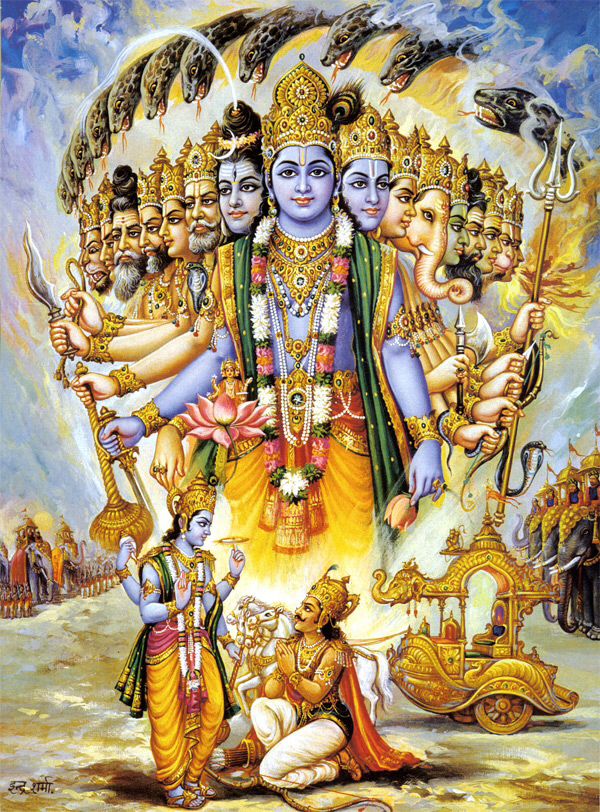The Importance of the Bhagavadgita : 7. Swami Krishnananda
16/07/2019.
(Gita Jayanti Message spoken on December 26, 1982.)
7.
This grew into a mighty magnificence of universal expanse which is the supreme shaktipada, as we may say in modern style – God entering man and possessing him, flooding him, overpowering him, destroying his existence itself, frightening him to his core, and compelling this frightened poor spirit to exclaim the very same prayers which were put into the mouth of Arjuna in the Eleventh Chapter :
“Mighty being, I cannot tolerate the vision that you put before me.”
Perhaps it is the salt doll that, before stepping into the ocean in which it is going to melt, gets frightened at the very sight of it and exclaims, “Enough of this!”
When our feet go one inch deep into the waters of the ocean, we get frightened at the waves dashing upon us and we draw ourselves back. We cannot even see the ocean without a sense of shocking fright which passes through the very veins of our body because it is a terror, and we know its powers.
Jnatum, drastum, pravestum are the words used towards the end of the Eleventh Chapter in connection with the manner in which the soul tunes itself with God existence.
It has to be understood, and the understanding was communicated in a mighty manner throughout the chapters leading up to the Ninth or Tenth, we may say.
Then comes drastum : It has to be seen. And it was seen by Arjuna.
He understood what it could be when, in the Tenth Chapter, he was told what God could be and what He is.
“Oh, it is like this. I understand. Jnana has come. Now darshan is necessary.”
"Manyase yadi tach chakyaṃ maya drastum iti prabho,
yogesvara tato me tvaṃ darsaya-atmanam-avyayam" (Gita 11.4) :
“O Lord, if you feel I am fit for this vision, deign, condescend to grant it to me.”
To be continued ..





Comments
Post a Comment